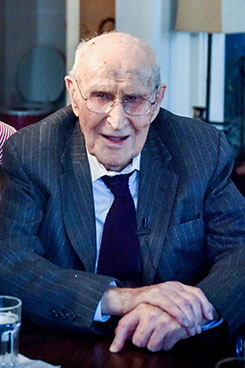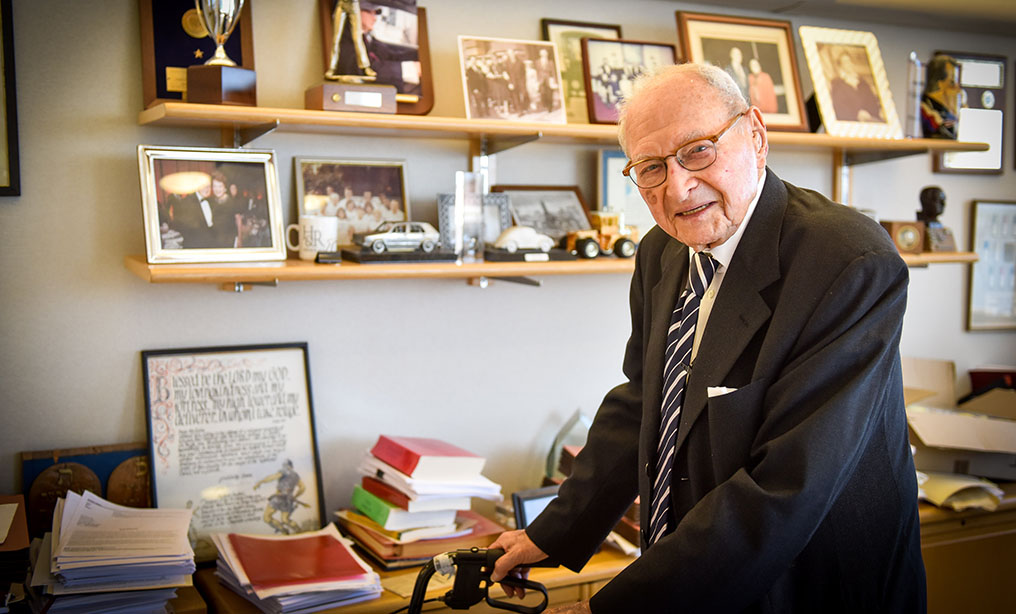When Herb Rubin’s partner died, he was recruited by a big law firm with a mandatory retirement age. Rubin, 100, the name partner at Herzfeld & Rubin in New York, is glad that he turned that offer down. Otherwise, he would have been forced to retire 35 years ago.
Paul Weiss partner Mordie Rochlin, 106, did retire 35 years ago when he reached the firm’s mandatory retirement age of 70. But Rochlin couldn’t imagine life without the firm, so he never actually left.
 Mordie Rochlin, who is 106, still has an office and an assistant at Paul Weiss 35 years after his retirement. (Photo: David Handschuh/ALM)
Mordie Rochlin, who is 106, still has an office and an assistant at Paul Weiss 35 years after his retirement. (Photo: David Handschuh/ALM)

 Herb Rubin is a 100-year-old attorney who still practices in New York. (Photo: David Handschuh/ALM)
Herb Rubin is a 100-year-old attorney who still practices in New York. (Photo: David Handschuh/ALM)







